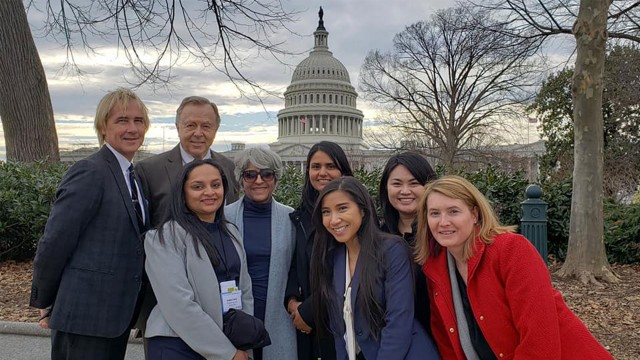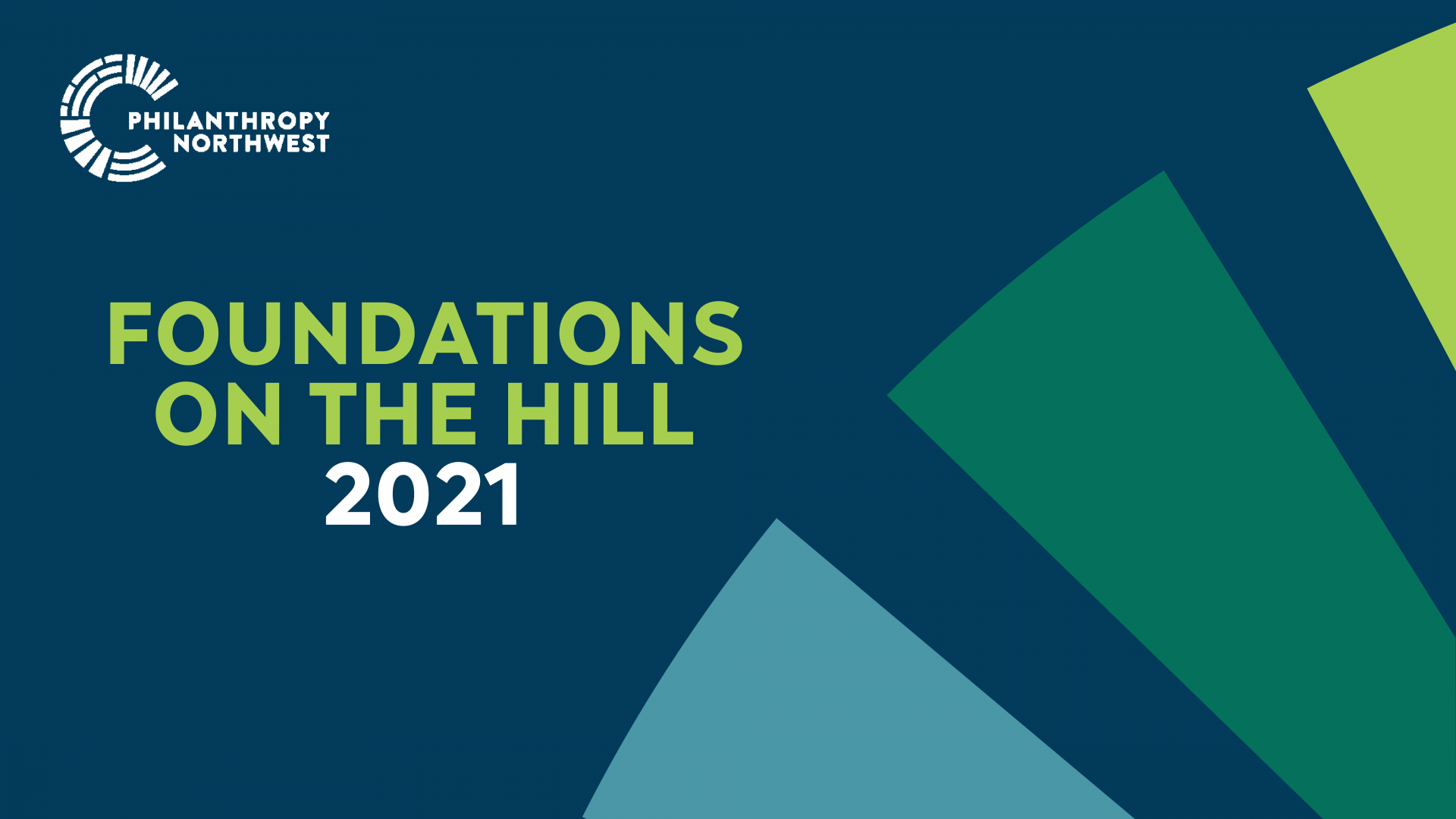
Foundations on the Hill (FOTH) is an annual advocacy event for philanthropies from across the country to meet with members of Congress. Last month, Philanthropy Northwest led a delegation of 40 members from our region, among the 250 participants from 34 states and territories.
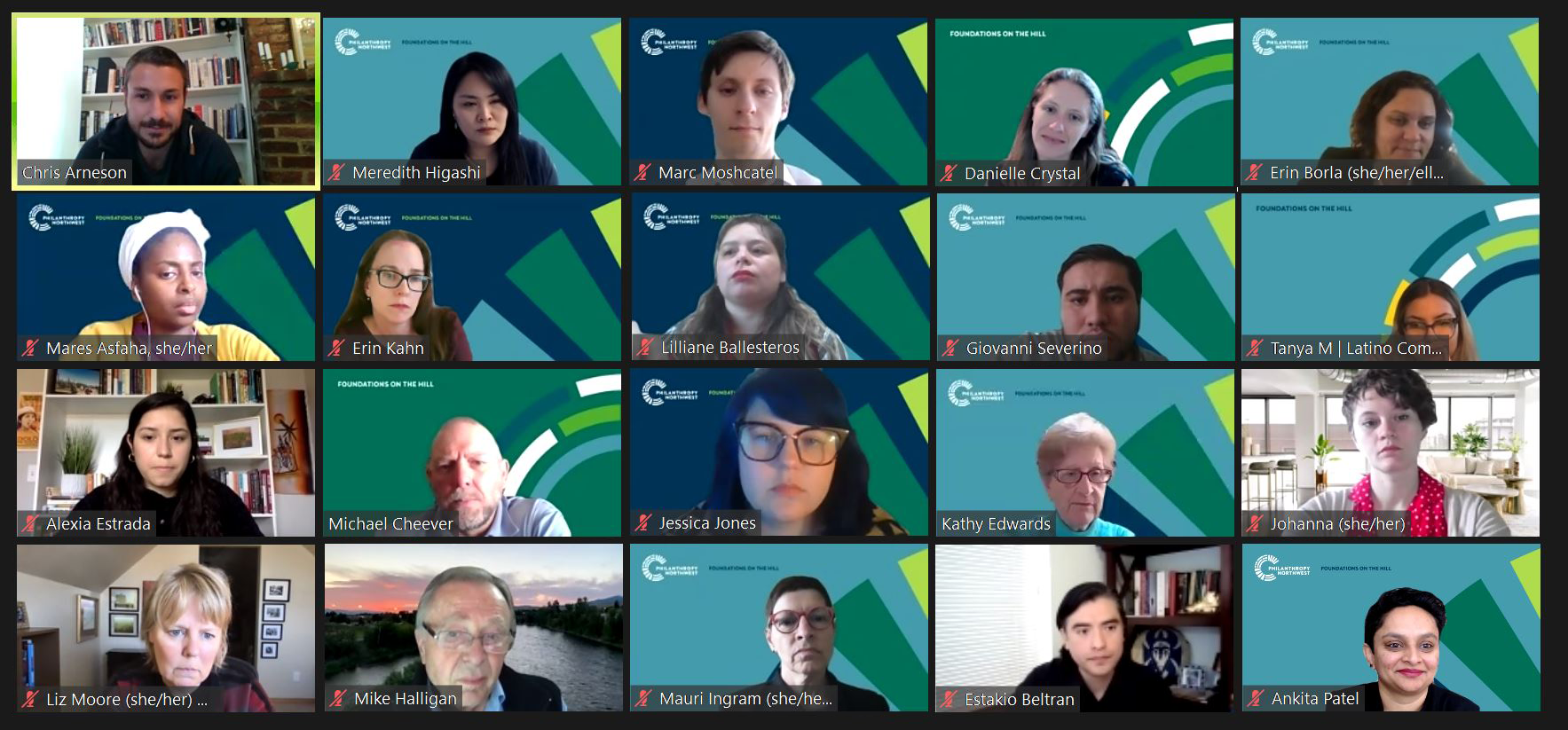
Delegates demonstrated first-hand how advocacy can be a powerful way for a foundation to advance their organization’s mission. Here are a few reflections from Philanthropy Northwest members who participated in Foundations on the Hill.
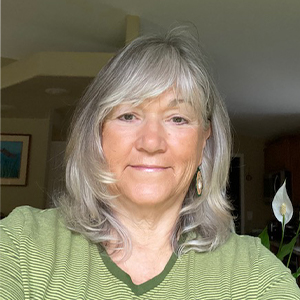
Executive Director
Na’ah Illahee Fund
“The momentum to address the ongoing crisis of Missing and Murdered Indigenous Women and Girls has been growing. There is no easy fix to ending this tragic issue that has been going on ‘under the radar screen’ for far too long, and that affects many rural and urban Indigenous families. It will take a concerted effort by tribal, state and local law enforcement, the courts, communities, tribal programs and philanthropy to pave the way for the changes needed. Recent federal legislation – the Not Invisible Act and Savanna's Act – designed to mandate these needed changes, must be strongly advocated for. There needs to be sufficient dollars appropriated and strategic plans to carry out specific activities called for in the bills. Foundations on the Hill gave Na'ah Illahee Fund and other Philanthropy Northwest members the opportunity to speak directly to elected officials and their staff about the importance of addressing this crisis. We owe this to ourselves and the communities we support to advance the conversation on Missing and Murdered Indigenous Women and Girls.
Through FOTH legislative meetings, I gained some valuable information about issues throughout our region to take back to our staff and leadership. I also learned about how government works on the inside, and how we need to utilize our relationships with elected officials and key committees to advocate more effectively when the situation arises (and it always does...).”
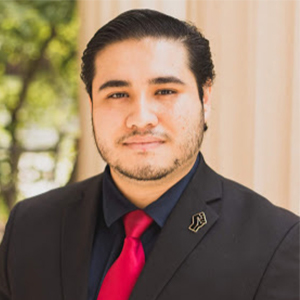
Lead Policy Organizer/
Organizador Principal de
Políticas
Latino Community Fund of
Washington
“During Foundations on the Hill, there were opportunities to talk about issues that directly impact the communities Latino Community Fund serves. We work with communities in Central Washington where agriculture is a huge industry that many Latinx community members work in. The Farm Workforce Modernization Act had recently passed the House, which prompted dialogue with migrant farmworkers, including undocumented community members, about whether this bill could open the possibility of a pathway to citizenship. We then researched the bill and realized the potential impact on the communities we serve with the passage of this bill. This timely dialogue, our research and the opportunity to talk to lawmakers gave us an opportunity to bring community voice to be considered by lawmakers.
I was able to see big foundations in the advocacy space and witnessed their advocacy to address many social issues that are affecting real lives in our communities. Most folks representing foundations used the space to address wealth inequality and acknowledge that COVID-19 has exposed flaws in the current way we live in our country. I would recommend FOTH to anyone hoping to understand the role of philanthropy in policy making aiming to support our communities.”
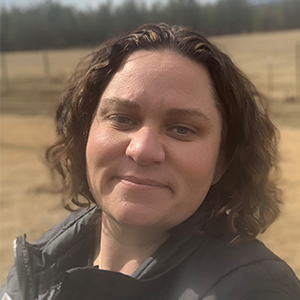
Executive Director/Trustee
The Roundhouse Foundation
“Our organization is committed to rural spaces and tribal nations throughout Oregon. While challenging with the time allotted [in short legislative meetings], I found myself able to serve as the spokesperson for our rural communities with congressional staff. I appreciated the real-time opportunity during our meeting with the Senate Indian Affairs Committee to thank our Oregon senators for their commitment to the Western Tribal Water Infrastructure Act that was brought forth again this year and passed by the committee. The Act would expand a reservation drinking water improvement program from $20 million to $50 million per year for the next four years (FY2021-2024), including directing more funding to the Columbia River Basin. Philanthropy can serve as an intermediary to ensure programs and projects on the ground are completed while serving as the voice for those who are not heard in this process. The Western Tribal Water Infrastructure Act has been passed and floundered in the past. Now, with its resurgence there is an opportunity to discuss ways that philanthropy and government can connect to solve this real-time crisis.
Philanthropy is a player in all of our communities, both rural and metro. With funders working alongside government from the local to federal level, systemic change can occur – but not if we do not communicate with one another. The opportunity to build relationships and help to better inform our own organizations of congressional activities that impact our sector and communities, as well as the chance to showcase issues that have arisen on-the-ground in places where we live, work and fund strengthens this symbiotic relationship and helps make real change.”
Watch the recording of our Philanthropy Northwest Network Call on April 9 to learn more about Philanthropy Northwest’s 2021 Foundations on the Hill experience.


